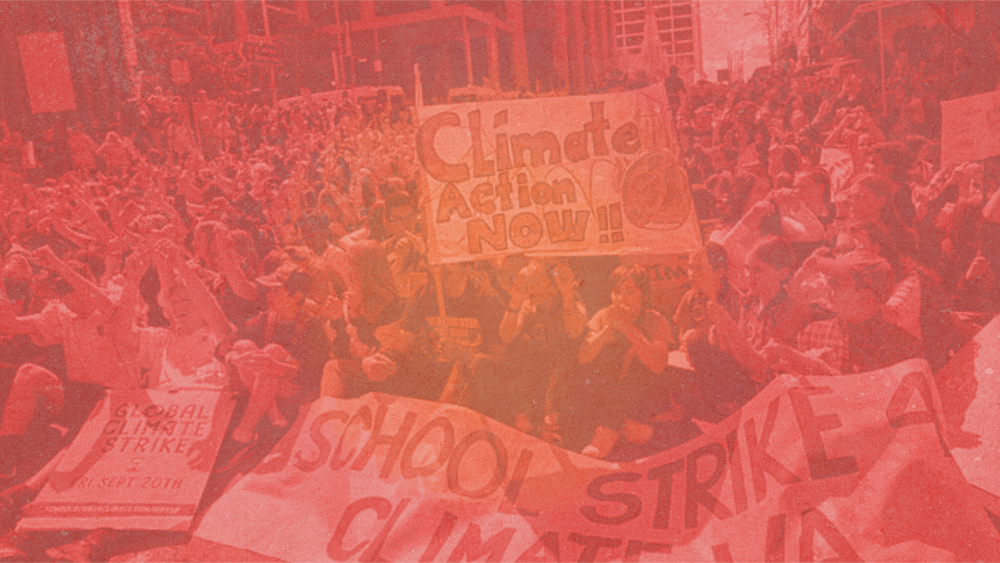DiEM25 sat down with activist Lucas Wermeier to discuss the End Fossil: Occupy! movement
End Fossil: Occupy is a grassroots movement arranging a series of youth-led protests at schools and universities which, as its name would suggest, is aiming to put an end to the use of fossil fuels once and for all.
We sat down with Fridays For Future’s Lucas Wermeier, who is organising occupations in Göttingen, Germany, to discuss what the movement’s broader intentions are and how they plan to go about achieving them.
One of the main inspirations of this initiative is the September 2019 Climate Strike, and Lucas hopes that the End Fossil: Occupy movement can be an extension of that.
“On the very basis, the idea is to bring back the Climate Strike of 2019, but on another level, but like Climate Strike 2.0,” Lucas said.
“The movement internationally was huge. We had weekly, hundreds of thousands of students skipping school and going to demonstrations.”
‘Occupy’ is a word so often used when it comes to protest. Lucas gave his take on what it means to him and this movement.
“Occupying means, having something that’s longer than a day because a global climate strike is big for one day and then it’s gone, the media doesn’t care anymore,” he said.
“So it’s about re-politicising the very basis of the movement – young people, students, same goes for university students.
“About universities: of course, university occupations are something that people are aware of, and kind of established as a political form of protest, although it’s not happening all the time.
“When it comes to occupying schools, it’s very different. In Germany, occupying schools is a very new thing but if you look at countries like Italy and Greece, there is a long tradition of occupying schools.
“It’s also about taking a next step, and taking these places to make use of them – to get the movement together and give people spaces to discuss, create, to come together and have this democratic experience of politics, grassroots politics.
“The Climate Strike started as a grassroots movement, which I’d say it isn’t anymore.
“Occupying schools usually means occupying the hall or big rooms that are not usually classrooms, rooms that you gather during lunchtime etc. [although] every school occupation will be different.”
Above just gaining media attention, getting the whole educational ecosystem talking about these matters is key.
“Media coverage is good for the movement, and getting people back in the movement but of course it’s about being provocative again,” he said.
“Nowadays nobody really thinks about that but the Climate Strike used to be really provocative. There was a lot of conflict about it but nobody ever gave in.
“So it’s obviously about being provocative and also politicising everybody else who has to react to it – the universities, the teachers, like in 2019, the parents, who will all be talking about it.”
“And the next step to that is media attention and pressure on the governments.”
Some might wonder why the protests are focused on schools and universities rather than government buildings or the energy companies’ headquarters.
“There is nothing against occupying different things like government buildings or maybe something, like occupy Wall Street, to the big fossil fuel companies,” Lucas said.
“But as we are a youth movement, the idea behind this is that schools and universities are the collective experience of the youth.
“It isn’t the very last idea or practice that the climate movement has to take to make the revolution, but in the ecology of movements we think it is a step towards bringing back the mass youth movement. But of course there has to be also different things within the movement to be successful.”
One of the stated intentions of End Fossil: Occupy is to “Occupying until we win”, but is the Green Transition affordable and feasible right now?
“To be realistic, of course, we know that this transition to a renewable economy is going to take a few years, but ‘occupying until we win’ just means establishing this thing and coming back and doing more occupations, a few weeks later and a few months later.
“In Germany, it’s currently the discussion, this energy crisis that everyone is really worried about, and that’s actually why we think this idea can really fit in this whole scheme of protests that are going to happen in fall and winter because we are addressing fossil capitalism.
“And I think we can say this about the whole of Europe, the energy prices are going up because we have a capitalist economy that really profits on this on a margin that is unbelievable. In Germany there is no extra tax on this, and in some countries there is, but it’s huge.
“We are actually addressing fossil capitalism and saying that we need a different society. We will stay in solidarity with everybody who will suffer from this situation in winter. And that’s also why in Germany we will have a social justice demand which will be about compensating the poor and middle class people within this crisis.”
How many protests/occupations are expected?
“The callout is from September to December but everything will be narrowed down at the start, around October. I can’t speak for every country but that’s the feeling I get from talking to people. We will start in October and maybe have the peak around November when the COP in Egypt will take place.
“We’re in over 20 countries. In Germany, we have 15 organised occupations and hoping for hundreds. I feel like, by looking back to 2019, we just had a new idea of protest and inventing that and pushing it through made it huge.
“We’re hoping to have a domino effect and have many people jumping on a train to make it huge. I feel like we’re really in political times and people know what’s on the line.”
Do you want to be informed of DiEM25's actions? Sign up here















